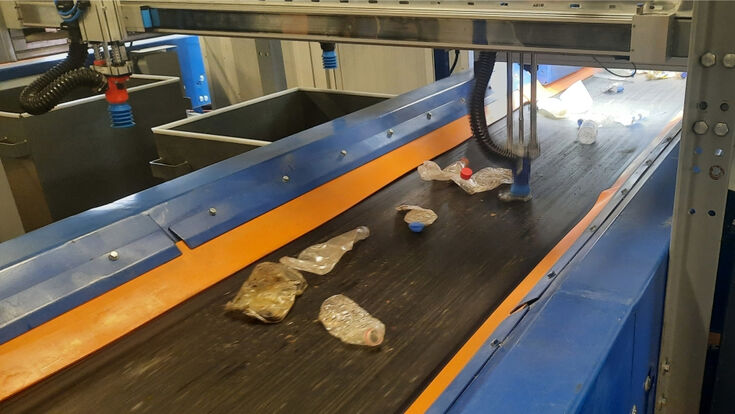Reclaim Waste Melbourne: Advanced Techniques for Reliable Liquid Waste Removal
Reclaim Waste Melbourne: Advanced Techniques for Reliable Liquid Waste Removal
Blog Article
Discovering the Significance of Reclaim Waste in Sustainable Waste Management Campaigns
In the world of lasting waste management, the concept of reclaiming waste emerges as a crucial part that demands focus and consideration. By checking out the elaborate interaction between waste recovery and sustainable waste administration initiatives, we begin to unwind a narrative that expands past conventional waste disposal techniques.
Significance of Reclaiming Waste
Why is recovering waste crucial in sustainable waste administration techniques? Recovering waste plays an essential function in sustainable waste management by decreasing the amount of waste sent to garbage dumps, preserving all-natural resources, and decreasing environmental impact.
Furthermore, reclaiming waste fosters a circular economy where products are reused and reused continually, advertising a more reliable and lasting use resources. It also adds to the production of environment-friendly tasks and economic development in the recycling and waste administration industry. By incorporating waste reclamation techniques into waste monitoring organizations, neighborhoods and approaches can move in the direction of a much more sustainable future, where waste is watched not as a concern however as a beneficial resource.
Benefits for the Setting
In the realm of lasting waste management, the method of redeeming waste not only conserves natural deposits and decreases waste sent to land fills yet also produces significant benefits for the atmosphere. By reclaiming waste products, such as metals, glass, plastics, and organic matter, the environmental impact of source removal and manufacturing is reduced (Liquid waste removal). This causes lowered power intake, reduced greenhouse gas emissions, and reduced levels of air and water pollution connected with extracting raw materials
In addition, redeeming waste helps in the conservation of biodiversity and all-natural environments. It reduces the need for landfill area, consequently decreasing land deterioration and habitat damage. Furthermore, the process of recovering waste commonly involves recycling and repurposing products, which in turn decreases the need for brand-new items and the associated power and sources needed for their production.
Payment to Circular Economy
Playing a pivotal duty in promoting sustainability and source effectiveness, recovering waste makes a significant payment to the circular economy. By reestablishing disposed of materials back into the manufacturing cycle, redeeming waste lessens the requirement for virgin resources, thus decreasing the overall ecological impact of source removal and usage. This process straightens with the principles of the circular economy, which emphasizes maximizing the value and utility of resources with closed-loop systems.
In addition, reclaiming waste advertises development and encourages the development of new technologies and processes for recycling and upcycling products. This not just lowers waste sent out to landfills yet likewise creates brand-new economic opportunities by producing secondary resources for manufacturing sectors. Because of this, reclaiming waste assists to create a much more resistant and sustainable economic climate that is less reliant on scarce sources and susceptible to disturbances in the supply chain. Ultimately, by incorporating waste improvement practices into waste monitoring initiatives, services and communities can actively add to building a much more regenerative and round economic situation.
Minimizing Landfill Waste

Education and learning and understanding projects on correct waste disposal and the value of decreasing, recycling, and recycling can likewise play an important role in reducing land fill waste. By focusing on the decrease of land fill waste, sustainable waste monitoring techniques can be improved, leading to a healthier setting and economy.

Future Ramifications
Taking into consideration the quick improvements in technology and progressing ecological challenges, the future ramifications of lasting waste monitoring are poised to change present techniques. The adoption of cutting-edge modern technologies such as expert system, Web of Things (IoT), and blockchain can considerably enhance waste surveillance, arranging, and recycling processes. These improvements allow real-time monitoring of waste streams, identification of recyclable materials, and boosted performance in resource allocation.
Additionally, the change in the direction of a circular economy design, where resources are reused, recycled, or upcycled, will come to be progressively widespread. This shift not only minimizes the dependence on virgin materials however also reduces waste generation, bring about a more sustainable and eco-friendly waste monitoring approach.
Furthermore, the combination of sustainable waste monitoring practices into more comprehensive sustainability schedules is anticipated to gain grip. Industrial waste water treatment. Organizations and governments worldwide are recognizing the importance of waste reduction and recycling in combating environment change and promoting a circular economic situation. Because of this, policies and policies supporting lasting waste monitoring efforts are likely to become more stringent, driving industries towards more environment-friendly methods
Conclusion
In final thought, the significance of recovering waste in lasting waste monitoring efforts can not be overstated. By recovering waste, click to read more we can decrease environmental impact, contribute to a circular economic climate, and reduce land fill waste.
By analyzing the complex interplay between waste improvement and sustainable waste monitoring efforts, we begin to untangle a story that extends past standard waste disposal techniques. Redeeming waste plays a crucial function in lasting waste monitoring by minimizing the amount of waste sent out to landfills, saving all-natural resources, and decreasing environmental effect. By integrating waste improvement techniques right into waste administration methods, businesses and areas can move in the direction of a more lasting future, where waste is viewed not as a burden but as an important resource.

Report this page